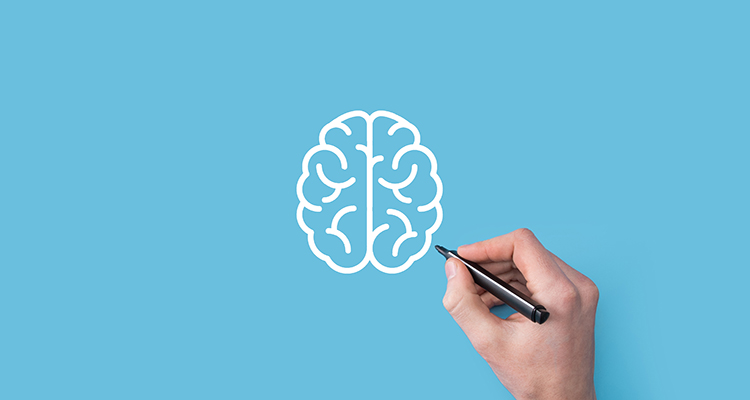How to Use Clonidine for Insomnia
There are countless sleep aids and medications on the market that promise to help you achieve a quality night’s rest. From natural supplements like melatonin and chamomile to prescription drugs, it can be difficult to choose. You may also be worried about side effects and dependency. These are all normal and legitimate concerns. Here, we’ll take a closer look at a medication called Clonidine including its intended use, side effects, and why it’s often used to relieve insomnia symptoms.

Content
What is Clonidine?
Clonidine is a prescription drug used to treat hypertension and high blood pressure. It’s also commonly used to help treat ADHD (attention-deficit hyperactivity disorder). One of the main side effects of clonidine is drowsiness to the point of mild sedation. It’s this adverse side effect that causes some people to use clonidine as a sleep aid. While not all medications that cause sleepiness should also be used to treat insomnia, there’s some evidence to suggest that clonidine may help you achieve a quality night’s sleep.

Let’s take a closer look at using clonidine for sleep.
How Clonidine Works
Clonidine is in a class of medications also known as centrally acting alpha-agonist hypotensive agents. These medications treat ADHD and high blood pressure by relaxing blood vessels in your body and decreasing your heart rate. By doing so, blood can flow more freely throughout your body. This medication also affects the parts of your brain that control impulsivity, attention, behavior, and expression of emotion

Clonidine comes in several forms including an extended-release, long-acting oral medication as well as immediate-release tablets and patches. When used to treat high blood pressure, clonidine should be taken twice a day. Clonidine is a popular medication used to treat ADHD in children. Some studies indicate that the medication helped children fall asleep faster and wake up fewer times throughout the night. There have been no studies of the effects of clonidine on adults with insomnia, but some report finding it easier to fall asleep after taking the medication.
As with any medication, it’s not recommended to take clonidine unless prescribed by your doctor and for treatable conditions such as hypertension. In addition, clonidine may help treat menstrual cramps, hot flashes, and opiate withdrawal.
Side Effects of Clonidine
It’s clear that one potentially beneficial side effect of clonidine is sleepiness. While this can be useful for those with insomnia, there are other mild side effects of clonidine you should be aware of.

These include, but aren’t limited to:
- Dry mouth and eyes
- Upset stomach
- Constipation
- Dizziness
- Headache
Some more serious side effects include:
- Chest pains
- Passing out
- Increased or abnormal heart rate
- Difficulty breathing
- Hallucinations
- Low blood pressure upon standing
Things to Consider Before Taking Clonidine for Insomnia
Because clonidine isn’t prescribed specifically to treat insomnia, there are a few things to consider before using this medication as a sleep aid.

Speak to Your Doctor
It’s important to always speak with your doctor before taking a new medication. Discuss your insomnia symptoms with a medical professional including how long it’s been going on, patterns in your sleep disturbances, and what other treatments you’ve tried. All of this information can help your doctor determine if you’re suffering from acute or chronic insomnia.
Be sure to tell your doctor of any other medications you’re taking, whether they’re for insomnia or other underlying medical conditions. Clonidine can negatively interact with certain medicines or prevent them from working properly. To avoid a dangerous allergic reaction, inform your doctor of all current prescriptions.
Try Natural Supplements
Sometimes, taking a holistic approach to sleep health is the best course of action. Before you reach for the pill bottle or prescription, try natural sleep aids including melatonin and chamomile.
Melatonin is a natural hormone produced by your body’s pineal gland at night. Once released, melatonin helps control your body’s sleep-wake cycle or circadian rhythm. Supplements containing melatonin can help replicate this natural hormone, making it easier to fall and stay asleep. Chamomile is popular in many herbal teas and is known as a sleep inducer. Drinking a hot cup of chamomile tea before bed can act as a mild tranquilizer, helping you fall asleep more quickly.
Make Lifestyle Changes
The power to improve sleep sometimes comes from within. That means making certain lifestyle changes like reducing your stress, avoiding unhealthy behaviors (drinking alcohol in excess and smoking cigarettes), and creating a sleep sanctuary in your bedroom.
Stress is one of the leading causes of insomnia. Racing thoughts, anxiety, and increased heart rate can all keep you up at night or wake you. In some cases stress even causes nightmares, worsening insomnia symptoms. Adopting stress-reducing exercises like yoga and meditation can improve your mind frame and your sleep health. While alcohol may cause drowsiness, drinking too much too close to bed will result in a restless night’s sleep and cause you to wake frequently. The nicotine found in cigarettes is a very powerful stimulant, which can make it’ll difficult to fall asleep.
Your bedroom should be a sanctuary for sleep and sex only. Don’t bring work or other distractions into this space. Instead, invest in dim lighting, a sound machine, and quality sheets that make your bedroom feel like an oasis.
Adopt a Healthy Sleep Routine
Adopting a healthy sleep routine is another way to ease insomnia symptoms without taking medication like clonidine. This includes avoiding screens like your TV or smartphone too close to bedtime, going to sleep and waking at the same time each day, and practicing relaxation techniques at night.

Treat Any Underlying Medical Conditions
Most forms of insomnia are secondary, which means they’re a result of something else. In most cases, insomnia is a side effect of other underlying health conditions. The most common conditions that cause insomnia include:
- Chronic pain
- Cancer
- Diabetes
- Overactive thyroid
- Alzheimer’s and Parkinson’s Disease
- Asthma
- Heart disease
- GERD (gastroesophageal reflux disease)
By treating these underlying medical conditions, many people find relief from the thing that’s causing their sleep troubles.
Find Insomnia Relief Today
Whether you’re struggling with chronic or acute insomnia, lack of sleep can cause a long list of mental and physical side effects. Lack of sleep can cause increased stress, weight gain, irritability, and the inability to focus. Over time, this can wear heavily on your mental and physical health.

Lifestyle changes combined with therapy and, in severe cases, medication can help ease insomnia symptoms so you can finally get the good night’s rest you deserve. Before taking clonidine or any other sleep aid, speak with a medical professional. Adopting other healthy habits can also improve your quality of sleep. At Somnus Therapy, we focus on different therapy methods, mindfulness and, cognitive restructuring to help you overcome your sleep troubles once and for all.
Click here to start your journey today!













